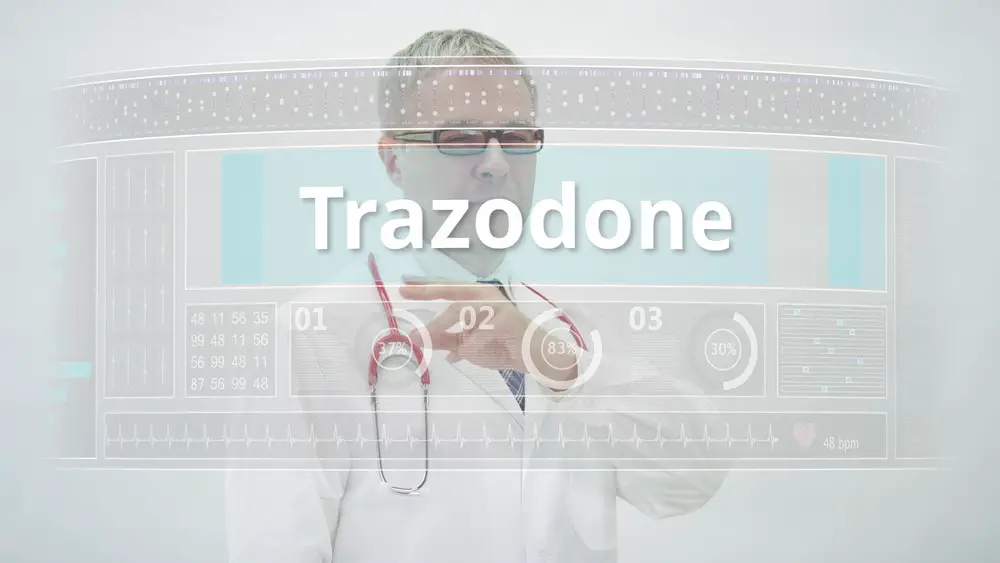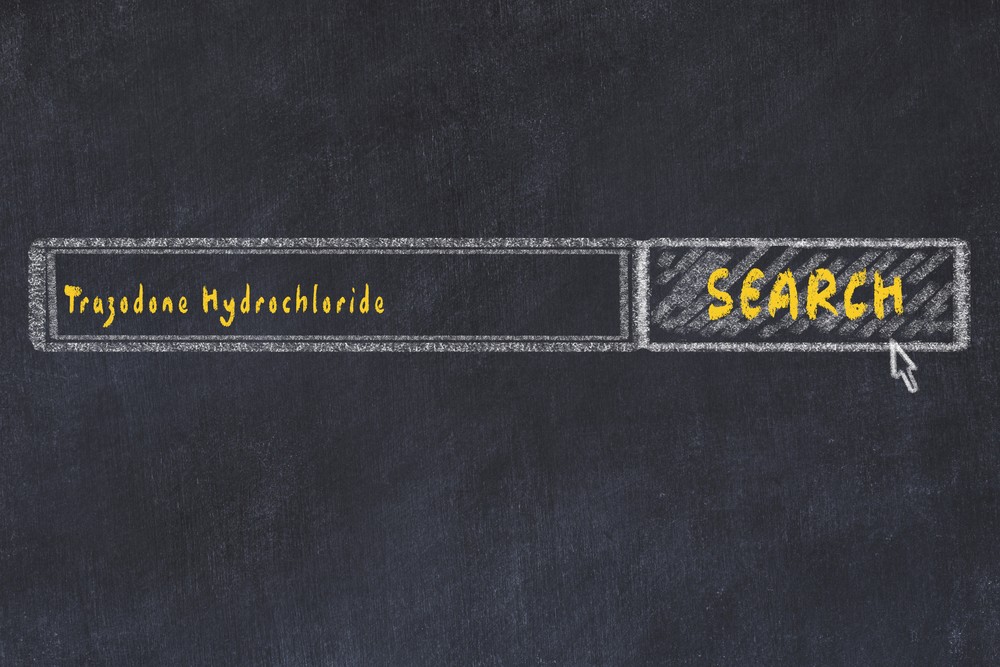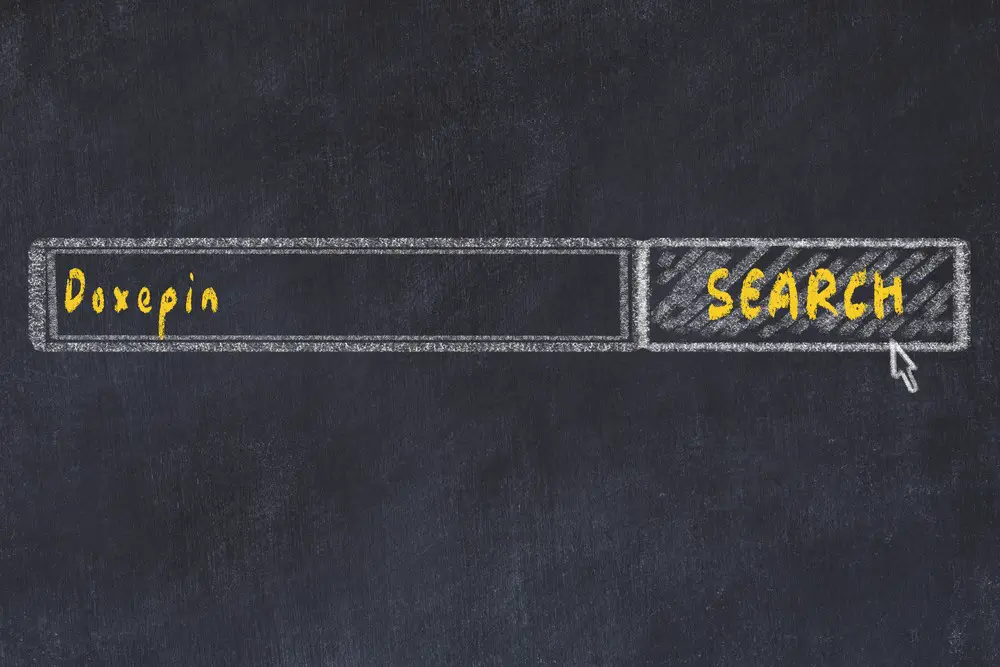As a BetterHelp affiliate, we receive compensation from BetterHelp if you purchase products or services through the links provided
Sleep issues can be debilitating and hard to manage, especially when there is a lack of understanding about the available treatment options. When considering doxepin vs trazodone for sleep, it’s essential to understand their side effects, dosage considerations, and potential benefits and alternatives that may work better in some instances. This article will provide an overview of both medications so you can make an informed decision about which one might be best for your situation. We’ll also discuss tips on getting better sleep without relying solely on medication.
Table of Contents:
Table of Contents
Overview of Doxepin and Trazodone
Doxepin and Trazodone are two medications used to treat anxiety, depression, and insomnia. Both of these drugs work by blocking the serotonin reuptake in the brain, which helps improve mood and reduce symptoms associated with mental health issues.
What is Doxepin?
Doxepin is a tricyclic antidepressant that has been approved for use in treating depression since 1969. It works by blocking the serotonin reuptake in the brain, which helps improve mood and reduce symptoms associated with mental health issues such as anxiety or insomnia. Additionally, it can be used off-label for other conditions, such as chronic pain or allergies.
What is Trazodone?
Trazodone is an atypical antidepressant that was first approved for use in 1981. Like doxepin, it also blocks serotonin reuptake to help relieve symptoms related to mental health disorders like depression or anxiety. However, unlike doxepin, it does not have antihistamine properties, so it cannot be used off-label for allergies or chronic pain relief purposes like doxepin can be used for those things too.
How Do They Work?
Both Doxepin and Trazodone work by blocking the reuptake of serotonin into neurons within the brain; this increases levels of available serotonin, which improves moods while reducing symptoms associated with mental health issues such as anxiety or insomnia. In addition to their effects on improving sleep quality, they may also help alleviate some physical ailments due to their antihistamine properties (doxepin only).
Both doxepin and trazodone are effective sleep aids, but it is essential to understand their differences and their potential side effects before taking either medication. Next, let’s look at the side effects of both medicines.
Side Effects of Doxepin and Trazodone
While these drugs can be effective in treating these conditions, they also come with potential side effects that should be considered before starting treatment.
Common Side Effects of Doxepin: Doxepin is an antidepressant medication that can cause a range of mild to moderate side effects, including dry mouth, drowsiness, dizziness, nausea, constipation, blurred vision, and weight gain. These symptoms may resolve after the body adjusts to the medication, but if they persist or worsen, it’s important to speak with your doctor immediately.
Common Side Effects of Trazodone: Common side effects associated with trazodone include headache, fatigue, dry mouth, and lightheadedness. Like doxepin, some people may experience more severe symptoms such as confusion or agitation, which should be reported immediately to your doctor for further evaluation.
Both doxepin and trazodone have been known to cause serious side effects such as changes in heart rate or blood pressure, difficulty breathing, fainting, seizures, suicidal thoughts or behavior, hallucinations, chest pain or tightness, skin rash/itching/hives/swelling and unusual bleeding/bruising. If you experience any of these symptoms while taking either drug, you must seek medical attention immediately.
It is also important to note that both doxepin and trazodone can interact negatively with other medications, so always check with your doctor before taking any new prescription drugs while on either one of them. Additionally, alcohol consumption should be avoided when taking either medicine as this could increase the risk for severe adverse reactions like drowsiness or impaired judgment, which could lead to accidents or injury.
While these drugs can effectively manage symptoms, they may also cause side effects. It is essential to understand the potential risks associated with taking either of these medications before beginning treatment.
Common Side Effects of Doxepin: Doxepin is an antidepressant used for decades to treat depression, anxiety, and insomnia. Common side effects include dry mouth, drowsiness, dizziness, nausea or vomiting, constipation or diarrhea, blurred vision or changes in color perception. Some people may experience weight gain while taking doxepin and have increased appetite or cravings for sweets.
It is essential to be aware of the potential side effects of both doxepin and trazodone when considering which medication may be best for treating insomnia or anxiety. Now let’s look at some dosage considerations for each drug.
Dosage Considerations for Doxepin and Trazodone
Both drugs have their recommended dosages, which should be discussed with a doctor before taking either medication.
Recommended Dosage for Doxepin: Doxepin is typically prescribed in doses ranging from 10 mg to 300 mg per day. The dosage will depend on the severity of the symptoms being treated and any other medications that may be taken concurrently. It is essential to take doxepin precisely as directed by your doctor or pharmacist to get the most benefit from it. Too much can cause serious side effects such as confusion, hallucinations, and seizures.
Recommended Dosage for Trazodone: Trazodone is usually prescribed at lower doses than doxepin; however, some people may need higher amounts depending on their needs. The typical starting dose for trazodone is 50 mg per day but can range up to 400 mg per day if required. As with doxepin, it’s essential not to exceed the recommended dosage without consulting a doctor first. Doing so could lead to serious side effects such as dizziness or fainting spells due to low blood pressure levels caused by excessive amounts of trazodone in the body system at once.
It is also essential that both medications are taken consistently every day for them to work correctly; missing doses or skipping days could reduce their effectiveness over time and make them less effective overall when treating anxiety or insomnia symptoms. Additionally, patients should always inform their doctors about any changes they experience while taking these medications, including increased anxiety or difficulty sleeping, so adjustments can be made if necessary.
It is essential to consider the recommended dosage of doxepin and trazodone when treating sleep issues. Next, we will explore the potential benefits of either medication for improved sleep quality and reduced anxiety.
Benefits of Taking Doxepin or Trazodone for Sleep Issues
Both of these drugs effectively improve sleep quality and reduce anxiety levels, but they can also cause side effects that should be considered before taking them.
Improved Sleep Quality with Doxepin or Trazodone: Taking either Doxepin or Trazodone has been shown to improve overall sleep quality by increasing the amount of time spent in deep sleep stages, decreasing the number of awakenings during the night, and helping people fall asleep faster. Studies have also found that both drugs reduce symptoms associated with insomnia, such as difficulty falling asleep, staying asleep, early morning awakening, and daytime fatigue.
In addition to improving sleep quality, both Doxepin and Trazodone can help reduce feelings of anxiety that often accompany insomnia. This is because both drugs work on certain neurotransmitters in the brain responsible for regulating moods and emotions. Targeting these neurotransmitters directly, it helps to reduce feelings of anxiousness while promoting relaxation so you can get a better night’s rest without feeling overwhelmed by stressors throughout your day.
Doxepin or Trazodone can effectively treat sleep issues, improving sleep quality and reducing anxiety. However, there are also other options available that may work better for some people.
Alternatives to Taking Doxepin or Trazodone for Sleep Issues
When treating sleep issues, there are alternatives to taking doxepin or trazodone. These include natural remedies, cognitive behavioral therapy (CBT), and other medications.
Natural remedies can be used in place of medication to help with sleep issues. Examples of these include relaxation techniques such as deep breathing exercises, yoga, meditation, and progressive muscle relaxation; lifestyle changes such as avoiding caffeine late in the day and maintaining a regular bedtime routine; dietary changes such as eating foods high in tryptophan which helps promote sleep; and herbal supplements like melatonin or valerian root which have been shown to improve sleep quality.
Cognitive Behavioral Therapy (CBT) for Sleep Issues: CBT is an evidence-based treatment focusing on changing negative thought patterns contributing to insomnia or other sleeping difficulties. It can also help identify any underlying psychological causes of sleeplessness and provide strategies for managing stressors more effectively so that they don’t interfere with getting restful sleep.
Other medications used to treat sleep issues include benzodiazepines such as lorazepam (Ativan) and temazepam (Restoril); non-benzodiazepine hypnotics like zolpidem (Ambien); antihistamines like diphenhydramine (Benadryl); antidepressants such as amitriptyline; anticonvulsants like gabapentin; and over-the-counter options including melatonin supplements or herbal teas containing chamomile or lavender oil, which have calming effects on the body when consumed before bedtime.
It is important to note that while these alternatives may offer some relief from symptoms associated with sleeplessness, they should not replace medical advice from a qualified healthcare professional who can assess your individual needs based on your health history and current condition. It is always best to consult with a doctor before making any changes in treatment or lifestyle.
Various factors, such as stress, anxiety, and depression, can cause sleep issues. While medications like doxepin or trazodone may help alleviate these symptoms in the short-term, other alternatives can provide long-term relief without using drugs.
Natural Remedies for Sleep Issues:
One alternative to doxepin or trazodone is using natural remedies for sleep issues. This could include lifestyle changes such as regular exercise, avoiding caffeine late in the day, establishing a regular bedtime routine with relaxing activities before bedtime (such as reading), and avoiding screens at least an hour before bed. Other natural remedies include aromatherapy with essential oils like lavender or chamomile; herbal teas; magnesium supplements; and melatonin supplements if needed.
Cognitive Behavioral Therapy (CBT) for Sleep Issues:
Cognitive behavioral therapy (CBT) is another option. CBT helps people learn how their thoughts and behaviors affect their sleep patterns and teaches them strategies to improve their sleep quality over time without relying on medication. It also helps people identify underlying causes of insomnia, such as stress or anxiety, so they can address those issues directly instead of just treating the symptom with medication alone.
FAQs
What sleep aid is better than trazodone?
Several sleep aids may be more effective than trazodone. Melatonin is a natural hormone supplement that can help regulate your body’s sleep-wake cycle and promote better sleep quality. Valerian root is an herbal remedy used for centuries to reduce anxiety and improve sleep quality. Other prescription medications, such as benzodiazepines, nonbenzodiazepines, and tricyclic antidepressants, have also been effective in treating insomnia. Talk to your doctor about which option might work best for you.
Can I switch from trazodone to doxepin?
It is not recommended to switch from trazodone to doxepin without consulting a healthcare professional. Your doctor will be able to evaluate your individual needs and determine if this medication change is appropriate for you. They can also guide how to safely transition between medications and any potential side effects or risks associated with the switch.
Can you take doxepin and trazodone together for sleep?
It is generally not recommended to take doxepin and trazodone together for sleep. Both medications are used to treat insomnia, but they have different mechanisms of action and can interact with each other in a way that may be harmful. Therefore, speaking with your doctor before taking both medications simultaneously is essential. Additionally, combining these two drugs could increase the risk of side effects such as drowsiness or dizziness. Discussing all treatment options with your healthcare provider before making any decisions about medication use is best.
How effective is doxepin for sleep?
Doxepin is an effective treatment for insomnia. It helps to reduce the time it takes to fall asleep and increases total sleep time. It also improves sleep quality, reduces nighttime awakenings, and decreases daytime fatigue. Doxepin is safe and well-tolerated when used as directed by a healthcare professional. However, speaking with your doctor before taking any medication for sleep is essential.
Conclusion
In conclusion, doxepin and trazodone are two medications that can be used to treat sleep issues. Both have potential side effects, so discussing the risks with your doctor before taking either medication is essential. Doxepin vs. trazodone for sleep should be considered carefully based on individual needs and preferences. Additionally, there are alternatives, such as lifestyle changes or other therapies, that may help improve sleep without the use of medication. Ultimately, doxepin vs. trazodone for rest is best made in consultation with a healthcare professional who can provide personalized advice about which treatment option is right for you.
Do you struggle with insomnia or stress-related sleep issues? If so, it’s time to take action and get help. Research shows that doxepin and trazodone are both effective in treating sleeplessness due to anxiety or depression. Visit Rest Equation for more information on these medications and advice on how to relieve stress naturally. We provide comprehensive resources about mental health care and therapy options so that you can make informed decisions about your treatment plan. Take control of your sleep today – visit us now!
- Breaking the Silence: Why Men’s Mental Health Matters More Than Ever - April 15, 2025
- How to Transform a Home’s Patio Space into a Relaxing Space - March 23, 2025
- 5 Strategies to Use a Cell Phone to Help Manage Your Stress - March 23, 2025
This site contains affiliate links to products. We will receive a commission for purchases made through these links.





